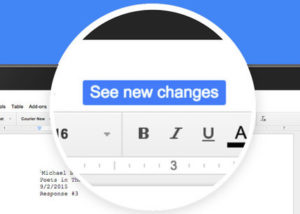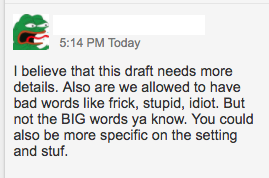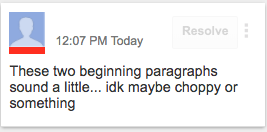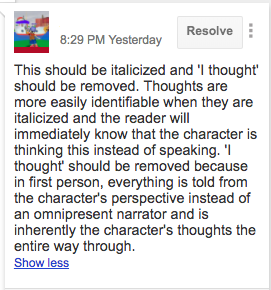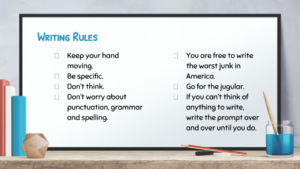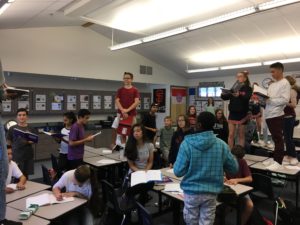As many know, three years ago I spent a large chunk of my summer commuting to UC Davis, dodging bikes and squirrels and writing. There was lots of writing. I was lucky enough to be trained as a Teacher Consultant for the Area 3 Writing Project. Not only did I write, I also learned very valuable lessons on the pedagogy of writing, getting our students to write well, but also why it was vital that I write, too.
Last week I had a refresher. I took part in the Advanced Institute, where in just three days my head was full with incredible ideas of how to bring writing, REAL writing to our students. Authentic.(Mentor texts, people!) I was reminded of Donald Graves and his understanding of the process of writing, and how we butcher that process in school. Graves understood that writers need to write almost every single day–not just for the essay at the end of the grading period. Writing is not merely just the end. Writing is thinking, formulating thoughts and getting them out on paper or a screen. It is not always polished, and it is definitely not always good. Reading a passage from Graves, again, his work hit me as hard as the first time I read them: “If students are not engaged in writing at least four days out of five, and for a period of thirty-five to forty minutes, beginning in first grade, they will have little opportunity to learn and think through the medium of writing” (A Fresh Look at Writing, 1994). Graves goes as far to say that if you can’t commit to the time, don’t even bother teaching writing. Whew! That’s a tall order for a middle school teacher who only has her students for 45 minutes each day. So how do you fit it in?
One of the best parts of my three days was getting to sit and discuss that exact question with a group of like-minded and like-frustrated middle school teachers. We discussed many viable solutions–starting the period with writing every day no matter what (which is what I have done the past three years), creating a system of centers to try and differentiate needs and meet with students. Kelly Gallagher and Penny Kittle tackle this same issue in their awesome book 180 Days (READ IT!). What resonated with me wasn’t just the solution in the English classroom, it was the suggestion of a systematic approach. Writing should be done across all content areas. The 35 minutes a day should not be just in the English classroom. In that case, how do we get our science, social studies and even math teachers to embrace writing?
I think the answer is low stakes writing. Low stakes means the writing can be on the spot, not even graded, but a way for students to explore ideas, as well as for teachers to check in on their students’ understanding. It can be shared with peers or simply live in a journal. It’s low stress for students and creates fluency in writing. Non English teachers often think that they are not qualified or do not have the time to “teach” writing, but every subject requires writing. What is missing is the constant practice of writing in those classes. I can’t tell you how many times I’ve heard a science or social studies teacher complain about student writing. But would we expect an athlete to win a game without hours of practice? Plus, writing is thinking, right? Then let’s get students thinking and writing in all subject areas. Every. Day.
As I move into administration this coming school year, I am hoping the reminders of the importance of writing across the curriculum will stay with me. I know the lessons I have learned from the Writing Project will never leave me. Because of that, I will end this post with my favorite proverb from our writing retreats: If you are reading everything (or grading everything) your students are writing, then your students are not writing enough. I am now amending this to include all content areas.



